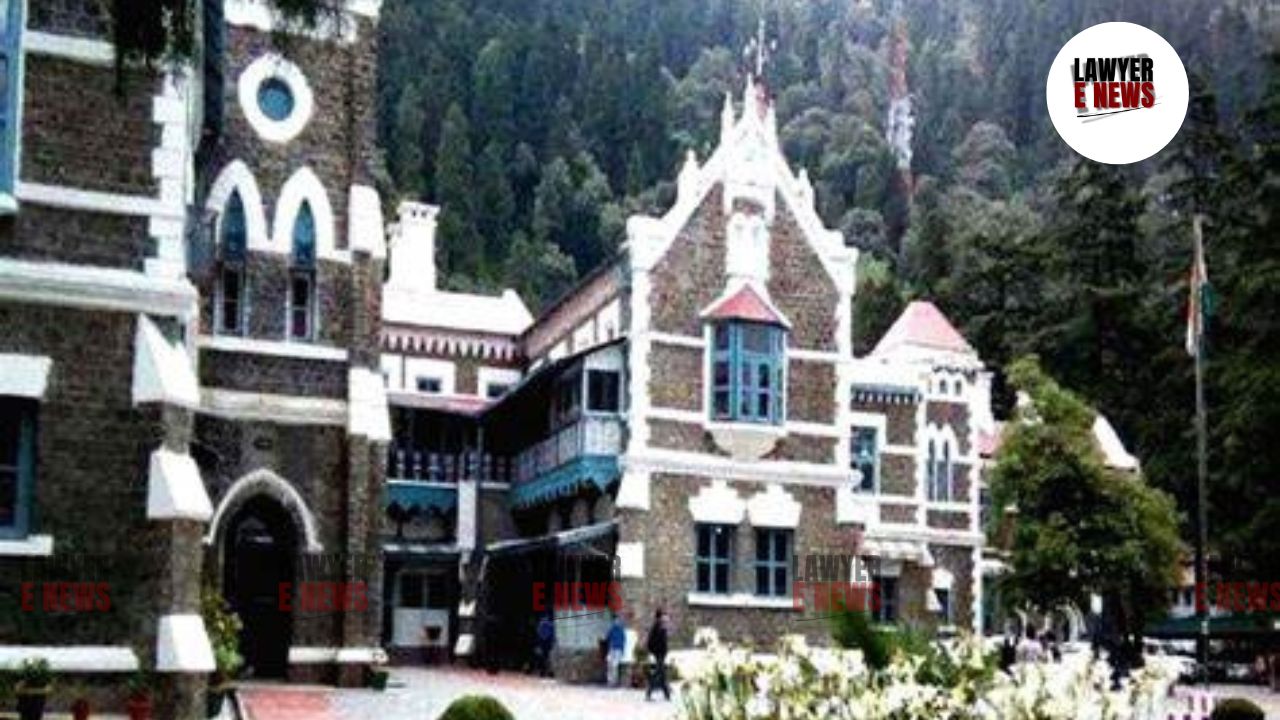-
by sayum
14 February 2026 2:22 PM



Court affirms that session-end benefit period constitutes regular service, mandates release of pension with arrears. The Uttarakhand High Court has ruled in favor of Smt. Shail Saxena, a retired Head Mistress, affirming her entitlement to pension by including the session-end benefit period in her qualifying service. The judgment, delivered by Hon’ble Justice Pankaj Purohit, highlights the importance of treating extended service periods as continuous, thereby meeting the qualifying criteria for pension. The decision also declared portions of contradictory government orders as ultravires for violating the principle of equality under Article 14 of the Constitution.
Smt. Shail Saxena, appointed as Head Mistress in Sharda Public Junior High School, Dehradun, retired on 30th June 2011 after 9 years, 9 months, and 16 days of service. She was granted a session-end benefit, extending her service to 31st March 2012, completing over 10 years of service. The primary contention was whether this extension should count towards her qualifying service for pension. Despite initial denial by the State on grounds of the extension being a reappointment, Saxena sought a writ of mandamus for the release of her pension.
Credibility of Government Orders: The court meticulously analyzed the relevant government orders dated 30.11.2007, 20.09.2011, and 28.02.2012. Justice Purohit noted, “The Government Order dated 20.09.2011 clearly treated the session-end benefit as a continuation of service.” In contrast, the contradictory portions of the Government Order dated 28.02.2012, which differentiated between retirees before and after 20.09.2011, were deemed unconstitutional.
Interpretation of Continuous Service: Addressing the issue of continuous service, the court remarked, “The service rendered during the session-end benefit period must be calculated towards regular service, thereby meeting the qualifying service requirement for pension.” This interpretation aligned with the principle of treating extended service periods as uninterrupted, ensuring fair pension entitlements.
Justice Purohit elaborated on the principles of service law, emphasizing the necessity of recognizing session-end benefits as part of continuous service. He stated, “The petitioner’s service during the session-end benefit period should be counted as regular service, entitling her to the pension and associated benefits.” The judgment underscored the precedence of equity and the constitutional mandate of Article 14 in service-related disputes.
“The upshot of the above discussion would irresistibly lead to only one conclusion that petitioner had 10 years qualifying service to her credit,” Justice Purohit concluded, affirming the inclusion of the session-end benefit period in Saxena’s qualifying service.
The Uttarakhand High Court’s decision to grant pension entitlement to Smt. Shail Saxena, including the session-end benefit period as regular service, sets a significant precedent in service law. By declaring contradictory government orders as ultravires, the judgment reinforces the principles of equality and continuity in service benefits. This landmark decision is expected to impact similar cases, ensuring fair pension entitlements for retired employees.
Date of Decision: 16th May 2024
